
Peru faces high levels of income inequality and has more than a quarter of its population living in poverty, according to the World Bank. Poverty levels are significantly higher in rural areas but urban areas struggle most with inequality, most notably metropolitan Lima. Poverty in the country is made worse by a shortage of productive farmland and a lack of job skills among women entering the workforce, as well as a lack of adequate housing, nutrition and education.
The Association of Damas Salesianas has been working to address the needs of children and their families in Puerto Chalaco, a district in the city of Callao, a major seaport in Peru. The Salesian-run organization, founded in May 1968 by Father Miguel González, is providing programs in 23 countries. In Callao, the association has a house caring for children and providing youth with a space that is peaceful and quiet allowing students to effectively think and do their homework. Above all, the house provides a chance for youth to be around caring adults who support them and help them with their school work and other needs.
Also in Callao, Salesian missionaries operate the San Juan Bosco Children’s Home within the community of Puerto Nuevo. The Children’s Home facilitates the Children of Lead project which is supported by the Don Bosco in the World Foundation and serves more than 80 youth from the area who have high levels of lead in their blood.
Puerto Nuevo’s population is contaminated by lead as a result of the environmental damage generated by the storage and transportation of lead ore to the community’s port. Most of the children participating in the Children of Lead project have levels of lead close to 19.9 micrograms per deciliter in their blood. This level is considered highly dangerous and can cause children to suffer cognitive delays.
Salesian missionaries who operate the Children of Lead project provide education and skills training opportunities to the participating children and adolescents while addressing their behavioral and cognitive difficulties. Often because of their cognitive and emotional difficulties, these students struggle in traditional classrooms and are less likely to achieve the higher levels of education necessary to break the cycle of poverty. The project provides specially trained staff to work with the students and also provides the expertise of a psychologist on staff.
The Children of Lead project aims to improve students’ educational outcomes through tutoring in reading, math and other academic subjects while simultaneously offering workshops in interpersonal communication, logic and educational psychology. Activities that include music and dance are also offered through the project and are designed to boost participants’ physical, mental and emotional development. In addition, participants have access to computer classes using online programs and games that help them develop reason and literacy as well as useful technological skills.
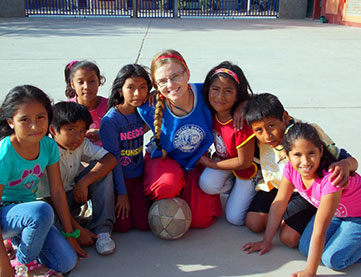
Each year, more than 120 youth have access to technical skills training thanks to a Salesian training center that opened in Loreto among the Kandozi Indigenous community in San Fernando in the district of Andoas. The Yankuam Jintia Training Center for Intercultural Education was developed by the Don Bosco Foundation to meet the needs of poor youth living in the Peruvian Amazon.
One of the challenges facing Salesian missionaries in Peru is creating opportunities for youth after they graduate from secondary school but are unable because of finances to pursue further education and training. To address this, Salesian missionaries are providing more technical and vocational training so youth are able to learn a skill and have access to long-term stable work that allows them to provide for their families and give back to their communities.
The training center seeks to improve the living conditions of indigenous families of the Achuar, Kandozi, Meztizos and Quechua ethnic groups in the Amazon. Youth are trained to be mechanics for outboard engines, as well as carpentry, agriculture and animal husbandry. Upon completion of a program, they are able to contribute to the development of their communities and to create resources through the provision of services to third parties. Youth reside in the Salesian boarding school and attend the four-month training modules of the Intercultural Education Center.
In addition, Salesian missionaries in Peru have worked to improve the standards for technical education and opportunities for youth around the country, and in particular, at the Salesian-run SALESTEC Institute. Each year Salesian missionaries hold a large education, technical and business Congress.
The Congress is attended by various companies in Peru that are working in strategic alliance with the Salesian Institute. Participants are able to receive information in the areas of electrical energy, electronics, production mechanics, car and motorcycle mechanics, welding and more. Companies have the opportunity to meet highly-trained youth between 18 to 35 years old who are ready to put the technical skills they learned at the Salesian Institute to work in real world environments.
Salesian missionaries at the CETPRO Santo Domingo Savio Technical Center in Lima provide training for young people with disabilities. They have also launched an awareness campaign to bring more attention to the abilities of those living with a disability in the country. According to the National Council for the Integration of People with Disabilities, about 1.5 million Peruvians have some kind of disability. That means nearly 5% of the total population lives with some limitation in moving, seeing, feeling, understanding and communicating.
The CETPRO Center houses hundreds of young people and provides a family home for youth and an oratory that welcomes both boys and girls. The Center works in cooperation with the Don Bosco Foundation of Peru and the Share Campaign of the Peruvian Episcopal Conference to train youth with special educational needs. Through this campaign, several young people with sensory disabilities benefit and are being successfully trained in screen printing and tailoring.
In addition, in coordination with specialists from the Service of Support and Consultation for the Care of Special Educational Needs (SAANEE), a seminar was organized for all CETPRO students to raise their awareness of the great efforts that their disadvantaged peers put forth to gain an education and how they face and overcome to achieve their goals. All students have been encouraged to show respect, tolerance and a willingness to help their peers who have different skills and to collaborate with them.
Salesian missionaries, through Red de Casas Don Bosco, serve hundreds of children and older youth, offering them a home, food, education, and spiritual and psychological support. Red de Casas Don Bosco includes 11 boarding homes in the cities of Ayacucho, Arequipa, Cusco, Huancayo and Lima (Breña and Rímac), and the Cusco Alto Andinas missions including Ampares, Calca and Quebrada Honda.
Children and adolescents are one of the most vulnerable segments of Peru’s population. This vulnerability requires special protection from the state, family and community. Salesian programs aim to help poor youth gain an education and have access to the basic needs they require. Youth engaged in Red de Casas Don Bosco programs are all minors who have lived in situations of social risk and were forced to survive in the streets, sleeping in parks and under bridges. They are children deprived of love and affection, and many are victims of violence, exploitation and abuse.
Red de Casas Don Bosco, with the support of the Don Bosco Foundation, promotes a fundraising campaign “Your hand supports a hope.” During the campaign, Red de Casas Don Bosco and the Don Bosco Foundation dedicated one day to local fundraising by carrying money boxes to various parts of the city and inviting people and local businesses to donate. All proceeds collected during the campaign were used to support the services offered to the children living in the homes of the Salesian network.
Devastating flooding caused by extreme weather since the start of 2017 has caused landslides in cities across Peru. According to the Associated Press, more than 500,000 people have been affected with thousands left homeless after a series of storms struck the country in the last few weeks. At least 115,000 homes have been destroyed, roadways are impassable and 117 bridges are reportedly washed out.
Peru is highly vulnerable to the adverse effects of climate change and the effects of intense rains that can cause flooding and landslides in the country. In the city of Piura, the sewer drainage system has been completely destroyed as a result of the flooding. Weather like this, coupled with the destruction of the drainage system, can be a breeding ground for disease and health complications for its residents. Salesian missionaries living and working in Piura, one of the hardest hit areas, are already responding to those who need assistance and are seeking funding to launch a project aimed at providing preventative health information as well as materials and supplies.
Salesian missionaries working at schools and youth centers in the regions near Piura provided close to 900 families with prevention education about these diseases. The information includes the dissemination of key messages that promote basic hygiene practices and the adoption of healthy habits. This work also helped communities strengthen their capacities to adopt operational measures to safeguard against dengue, malaria, diarrheal diseases, respiratory infections and dermatological problems, among others. Salesian missionaries also provided food and other basic supplies to families in need.
Salesian missionaries in Lima have launched a new program, Casa Don Bosco, to assist the many migrants who are fleeing from Venezuela. BBC News reports that tens of thousands of Venezuelans are fleeing their country because of chronic shortages of food and medicines. Since 2014, millions of citizens have left Venezuela given the country’s longstanding economic crisis. Surrounding countries are struggling to accommodate the influx of people needing support, shelter and assistance.
UNHCR, the United Nations refugee agency, has warned that the continent faces a refugee “crisis moment” similar to that seen in the Mediterranean in 2015, according to a BBC article. UNHCR is in the process of setting up a special team to coordinate a regional response.
Peru is already home to nearly 400,000 Venezuelan migrants, most of whom arrived in the past year. Salesian missionaries in Peru are working to set up accommodations and programs to help migrants integrate into their new communities.
Salesian missionaries have also utilized an unused wing of the Salesian College in Lima as a reception center for Venezuelan youth. The center current accommodates 52 young men aged 18 to 25 years old. Father José Valdivia, the provincial economer of Peru, is in charge of the center. After working a long day on accounting activities, he joins these young men who are all returning from working 10-12 hours of labor and are sitting down to dinner. Fr. Valdivia stays with them after their meal and encourages them, and counsels those who are having a difficult time.
In addition, the Ministry of Foreign Affairs asked Salesian missionaries to sign an agreement to set up temporary migrant assistance offices at the Salesian Institute, which is located in the Breña neighborhood of Lima The Salesian Institute is expected to receive an average of 1,000 people per day.
Salesian missionaries in Breña, a district within the capital city of Lima, facilitate a project each year known as Sol Bosco. This program provides educational lessons and a safe space for youth to enjoy time with their peers and develop skills and expertise in various disciplines. Youth can access skills training in courses such as guitar, cooking, martial arts, soccer, volleyball, basketball, handicrafts, and traditional and modern dance.
Youth from the Salesian parish of Mary Help of Christians kicked off the program in 2017 by going from house to house in Breña announcing that the program had started. As a result, more than 100 children are registered to participate. The workshops are offered by older youth that are part of the Salesian Youth Movement.
In addition, the Don Bosco Home for Troubled Youth, located in Calca, was able to improve the condition of its facilities thanks to Salesian Missions donors. Funding was used to renovate a dilapidated part of the home and included the addition of a storage area and the repair of a previously unsafe basketball court and recreation area. Sports and recreation are an important part of Salesian programs, providing youth a chance to connect with their peers, gain team building skills and have fun in a supportive environment.
The Don Bosco Home is part of the larger Red de Casas Don Bosco initiative which serves hundreds of children and older youth, offering them a home, food, education, and spiritual and psychological support. Red de Casas Don Bosco includes 11 boarding homes in the cities of Ayacucho, Arequipa, Cusco, Huancayo and Lima (Breña and Rímac) as well as the Cusco Alto Andinas missions including Ampares, Calca and Quebrada Honda.
Salesian missionaries with Don Bosco Home have also developed a new music workshop that will provide both a cultural and psychological benefit. This program will help youth keep their roots through the study of folk songs and also support youth’s psycho-physical well-being through music. The students will attend the course twice a week for two hours of lessons each session. Traditional pan flutes, triangles, wooden bass drums and modern musical keyboards will be utilized.
Salesian missionaries in Breña, a district within the capital city of Lima, have a provincial house, Salesian College, Superior Institute and Technical Vocational Center, and a house for homeless youth. Missionaries also operate the Mary Help of Christian’s parish, which provides communal meals for the elderly and sick residents of Breña. Every day, from Monday to Friday, people come to enjoy the afternoon meal at the Salesian parish. For some it’s the only meal they have each day.
There are 18 different groups of women that prepare the meal each day. The groups take turns finding the food, often collecting donations door to door, and then preparing and serving the meal. Others come to talk and interact with those who have come to rely on the parish workers for their nutrition. For some volunteers, it’s a chance to give back to their community and to stay busy and connected. Fernando Soto used to accompany his wife, Esther Arce, from house to house to collect food. She has since passed away, but he continues his mission, with the task of running the dining room.
Meals provided to the sick and the elderly improve their health, mood and overall well-being. In addition, people are able to speak with Salesian staff and access other services as well as stay connected within their community.
More than 9,600 people in need received nutritional support thanks to a partnership between Salesian Missions and Feed My Starving Children. A shipment of rice-meals was provided to the Don Bosco Foundation in 2022 and distributed throughout the year to 10 civic and religious programs serving people who are sick, the elderly, at-risk youth and other marginalized populations.
Salesian missionaries with the Don Bosco Foundation of Peru launched a free medical, surgical and dentistry clinic in the city of Piura, in the northern part of the country. The free medical and dental assistance began with the help of 14 medical and dental professionals who are part of ULYSSES, a humanitarian organization providing professional medical assistance.
The city of Piura was chosen because it ranked poorly for health conditions and access to medical and dental assistance. The area is the main producer and national exporter of organic bananas, mangoes, lemons, grapes and other products like coffee, but even still, more than 35 percent of the city’s residents live in poverty. The medical clinic was also made possible through support from the Regional Government of Piura, Diresa, the Naval Station of Paita, the City of Paita, the Terminal Port Euroandinos, the Stella Maris Institute of Lima, the Salesian Institute and the Food Bank.
Eighty surgeries were performed during the medical clinic and more than 100 people accessed free dental examinations. Dentists also provided free oral health education to more than 1,000 school children in the region. During the presentations, students received free toothbrushes and toothpaste. Since 2005, Salesian missionaries have been offering similar medical clinics in Peru to improve the quality of life for people.
Offering these free medical and dental clinics is nothing new to Salesian programs. Salesian missionaries offer more than 200 medical clinics and hospitals, mostly in rural areas, that handle a wide range of medical care needs.
Salesian chapels in Peru received solar panels to help with electricity thanks to donor funding from Salesian Missions. Solar panels were provided to Santa María de Cahuapanas, Barranquita, Chopiloma and one other chapel. Given the size of the Santa María chapel, two solar panels were installed. The chapel is also undergoing other renovations including upgrading the roof and adding solar lighting. The work is being done in coordination with the local Catholic community.
In 2023, Salesian oratories had the funding for infrastructure upgrades thanks to donor funding. Bartolome Garelli, Maria Auxiliadora and Domingo Sage oratories, all located in Piura, needed significant reconstruction, particularly the roofs. The balance of the donor funding not used for repairs will be used to purchase trophies and volleyball and soccer balls for sports championships. Each oratory serves more than 100 youth each year.
Nearly 1,400 people benefited from a donation from ASAP – Tools for Empowerment thanks to a partnership with Salesian Missions. Don Bosco Foundation received the donation and distributed it to seven Salesian organizations including Bosconia Technical Education Center, Salesians in Piura, Salesian Polytechnic Education Center and Salesians in Monte Salvado, among others.
The donated tools and equipment have been used mostly by students in technical training centers. Students have access to them during the practical part of their training in courses focused on carpentry, automotive mechanics, electricity, industrial pattern making (textiles), metalworking and agriculture. The tools are also used for maintenance and gardening, and in the warehouse. Students who have completed their training have also benefited from basic tool kits including hammers, pliers, screwdrivers and saws. Young Venezuelan migrants housed in the Magdalena Shelter benefited from baseball equipment for their recreational activities.
From Peru

From Peru

Nearly 1,000 Salesian vocational, technical, professional and agricultural schools reach students. NEW ROCHELLE, NY (Jan. 24, 2026) Salesian Missions, the U.S. development arm of the Salesians of Don Bosco, joins humanitarian orga
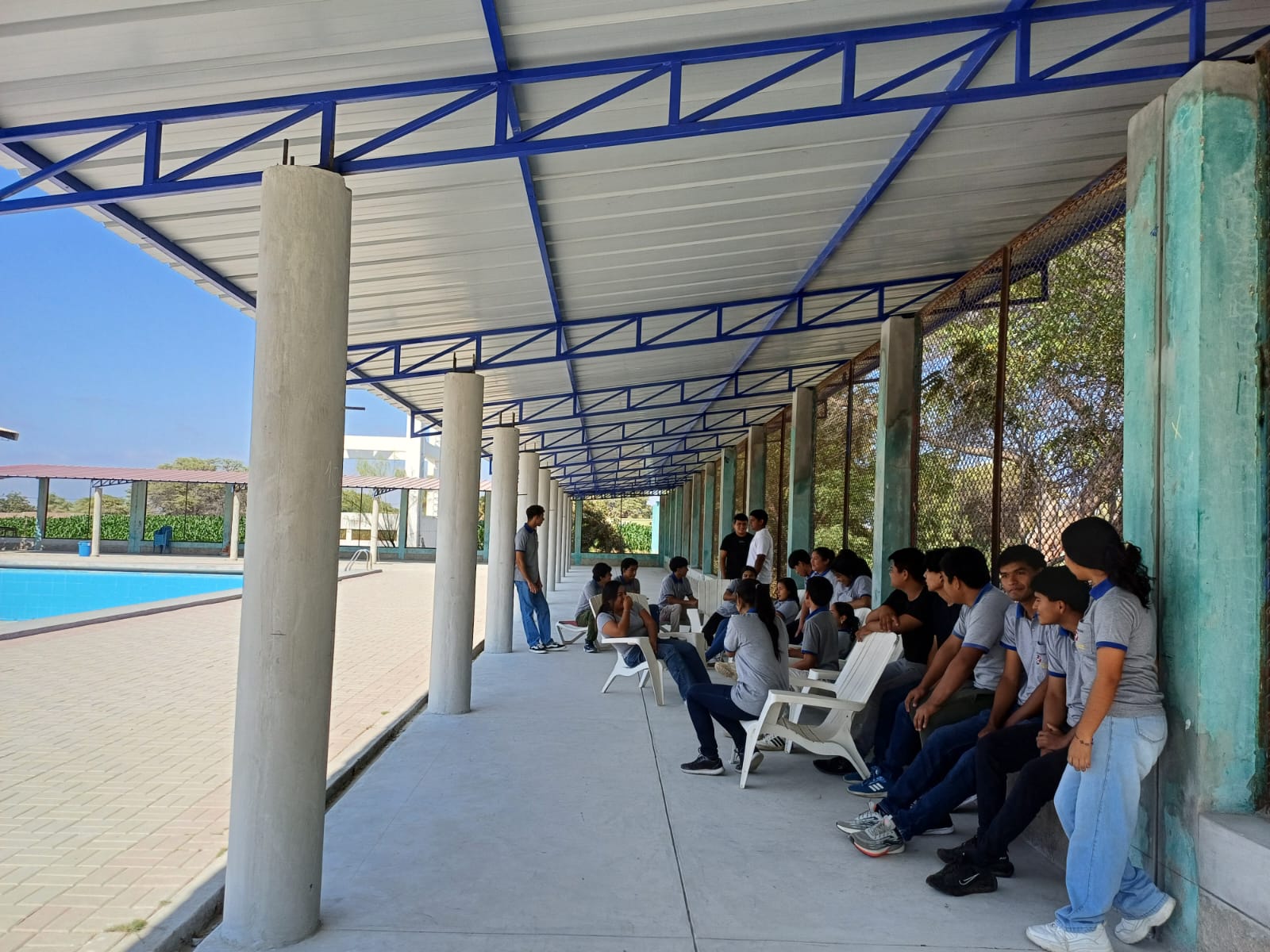
Air conditioning, roof reduce heat issues affecting students. NEW ROCHELLE, NY (Oct. 27, 2025) Salesian missionaries have been able improve the learning environment for youth who are vulnerable and are studying at the Bosconia cen
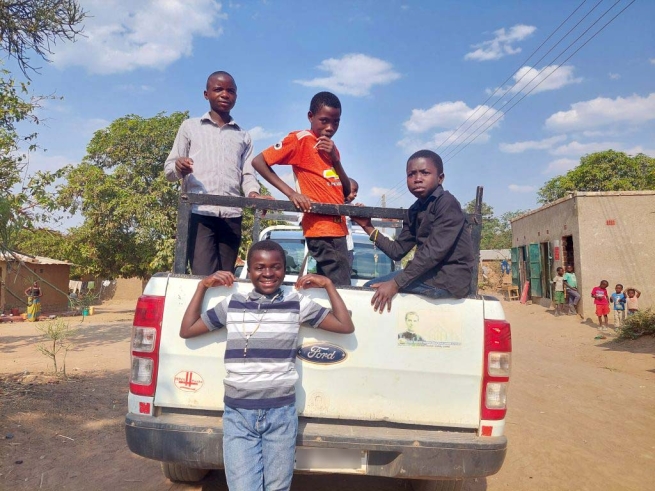
Salesian missionaries around the globe focus on empowering youth. NEW ROCHELLE, NY (March 20, 2024) Salesian Missions, the U.S. development arm of the Salesians of Don Bosco, joins humanitarian organizations and countries around t
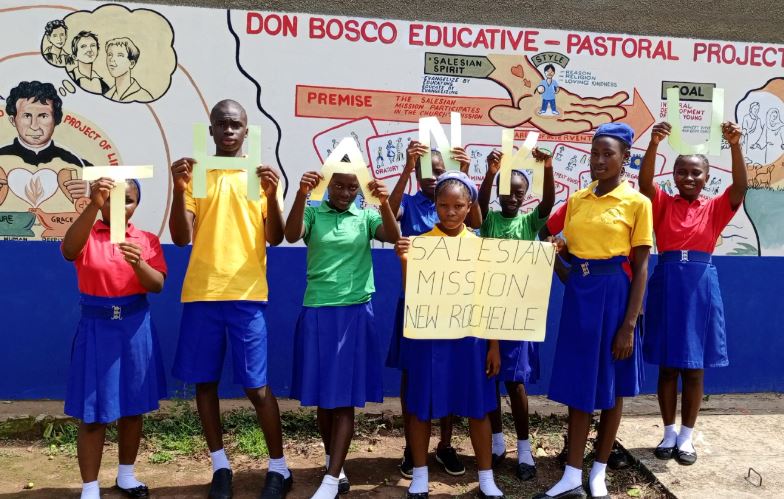
Universal Declaration of Human Rights adopted 75 years ago. NEW ROCHELLE, NY (Dec. 10, 2023) Top of Form Salesian Missions, the U.S. development arm of the Salesians of Don Bosco, joins humanitarian organizations and the internati
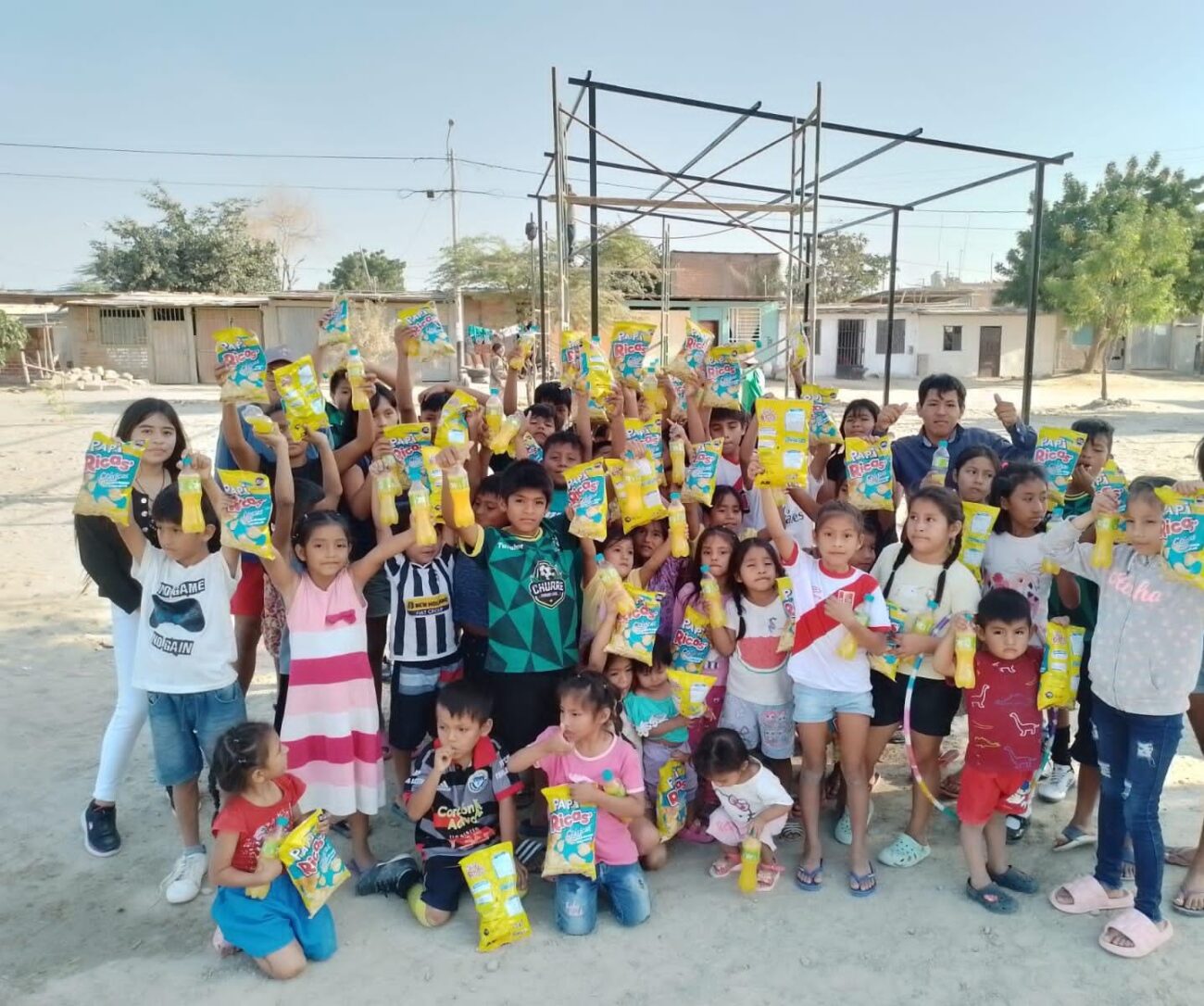
Each oratory serves more than 100 children. NEW ROCHELLE, NY (Oct. 31, 2023) Three Salesian oratories (youth centers) in Piura, Peru, are making infrastructure upgrades thanks to donor funding from Salesian Missions, the U.S. deve
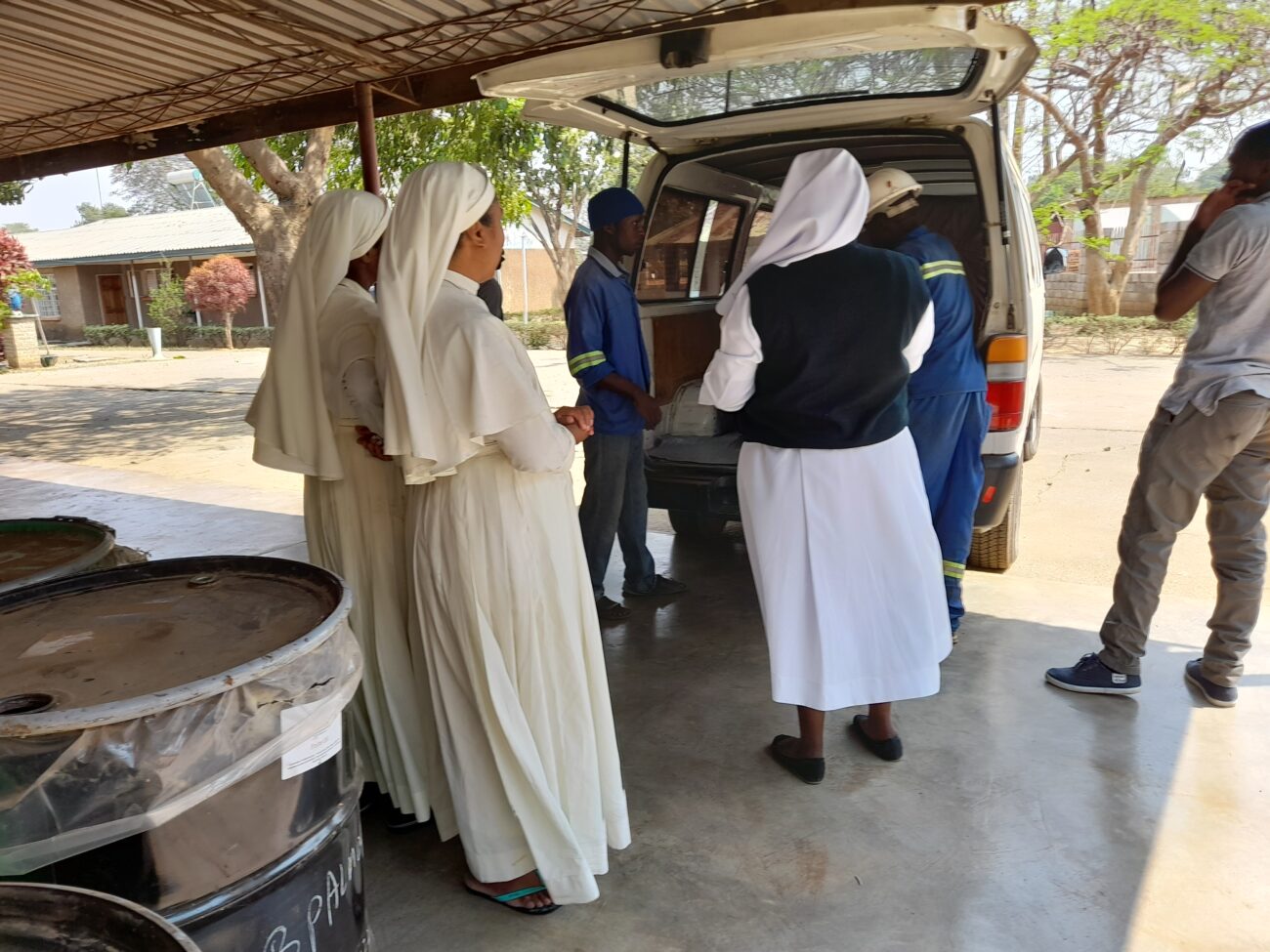
Along with providing education, Salesian missionaries work to meet basic needs of youth and their families. NEW ROCHELLE, NY (Sept 5, 2023) Salesian Missions, the U.S. development arm of the Salesians of Don Bosco, joins humanitar
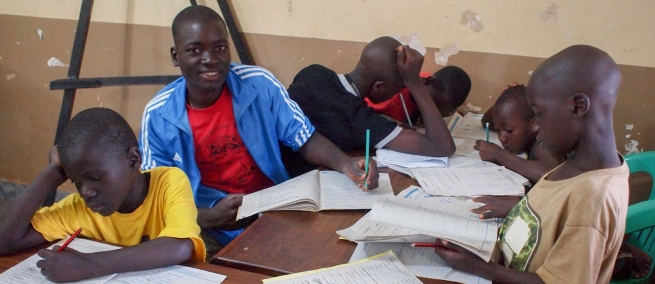
2023 theme is ‘Reach every victim of trafficking, leave no one behind.’ NEW ROCHELLE, NY (July 30, 2023) Salesian Missions, the U.S. development arm of the Salesians of Don Bosco, joins humanitarian organizations and countries
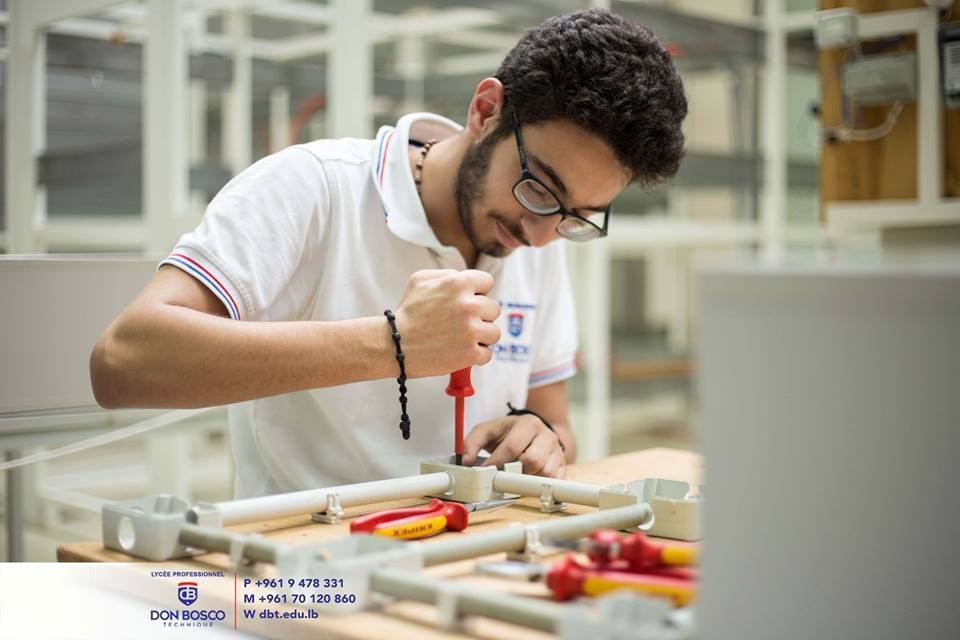
Salesians offer more than 1,000 vocational, technical, professional and agricultural schools around the globe. NEW ROCHELLE, NY (July 15, 2023) Salesian Missions, the U.S. development arm of the Salesians of Don Bosco, joins human
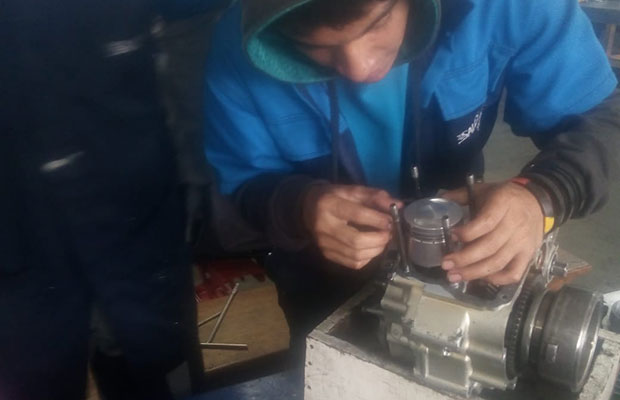
Growing up in Venezuela hadn’t been easy for young Francis—and it’s no wonder. Pummeled by skyrocketing inflation and the country’s relentless economic crisis, he and his family struggled just to eat most days. Getting an
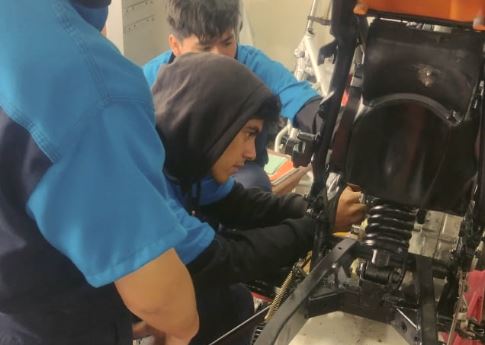
Nearly 1,400 benefit through partnership between ASAP – Tools for Empowerment and Salesian Missions. NEW ROCHELLE, NY (May 16, 2023) Nearly 1,400 people in Peru benefited from a donation from ASAP – Tools for Empowerment thank
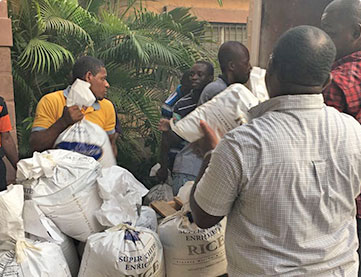
Salesian Missions includes agriculture in its vocational training programs – to ensure that youth of Rwanda learn better agricultural practices as well as keep the school self-sustaining in the face of the country’s food shortages.
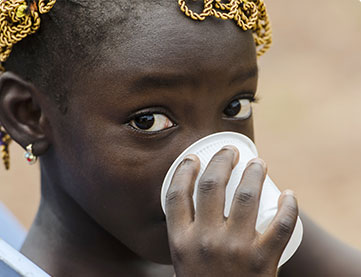
Salesian Missions includes agriculture in its vocational training programs – to ensure that youth of Rwanda learn better agricultural practices as well as keep the school self-sustaining in the face of the country’s food shortages.
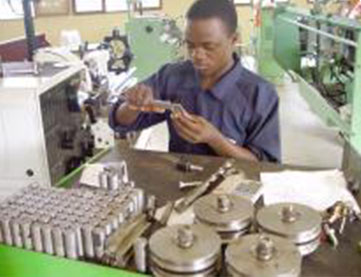
Salesian Missions includes agriculture in its vocational training programs – to ensure that youth of Rwanda learn better agricultural practices as well as keep the school self-sustaining in the face of the country’s food shortages.